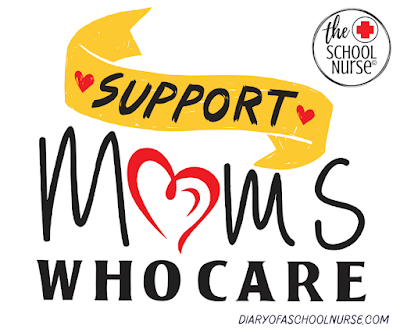I'm a New School Nurse- Now What?
+ this post contains affiliate links +
Hopefully Helpful School Nurse Tip: So many school nurses don't receive a proper orientation period or school nurse mentor. If this sounds like your experience then I hope you're able to find a school nurse mentor who can help you along your journey. Join a new school nurse newsletter series HERE.
I'm a new school nurse & I have no idea what to do...
Many new school nurses are super excited to start their new career. They also feel a little lost since many times orientation periods are brief and mentors can be hard to find. School nurses are also many times the only medical experts in a building full of education staff and students.
If you're new to the world of school nursing then this interactive toolkit from NASN might be a super helpful resource for you. And this online, anytime CE course titled Building Bridges: The Importance of Networking & Mentoring For School Nurses will teach you how to build strong connections! Sign up for more details about the course HERE.
Before you read any further, check out this DOASN blog post listing the top 10 things for the school nurse to think about!
Then, read up on these top 3 DOASN blog tips for new school nurses planning for a smooth start to a new school year.
For quite a few years (mostly in the beginning of my school nursing journey), I would work outside of contracted / paid hours. By working outside of my contracted hours, I mean would come in early or stay late, work extra in the summer, work "a little bit" on evenings and weekends even though I knew I wasn't going to get paid extra. However, I was OK with not getting paid any extra.
I was OK with not getting paid because having an organized school nurse's office was worth the trade off for me. You will need to decide if the same is true for you. Below is a list of three items I would focus on to make my school nurse's office and life a little bit easier for the upcoming school year. (learn more about setting boundaries HERE).
1. Organize The School Nurse Office
- Take time to organize your office! Think about the space you have and try to make the most of it. Try making work stations in your space. Consider a "treatment" area where you will help students, an area to organize your supplies, a desk area for paperwork (there will be mountains of paperwork!), Maybe you're lucky enough to have a rest/quiet area too? Having your items organized within designated areas in your office will help define the spaces for you, or students and staff too. I really enjoy decorating my office space! You can see a few pictures on The School Nurse Instagram Page and shop some school nurse office decoration ideas on The School Nurse Amazon Storefront Page!

2. School Nurse Summer Work Days
- Do you get paid extra to work during the summer? Many school districts pay their nurses an extra set number of days to work at the end of and/or the beginning of a new school year. I receive 10 extra paid days and this is what I work on... Review health folders/charts and make note of students who have health concerns. Review immunization status and touch base with those who are out of compliance. Update emergency medications, email students regarding yearly dental clinics, touch base with families (via Skyward) regarding our Moms Who Care program and offer a sign up form. Read these other blog posts for additional help: School Health History Form, Emergency Bag for School Nurses, and Health Information- Digital Teacher Tips Cards.
- Know what the school health requirements are in your state. Then, figure out how you'll want to track your students who are not in compliance with the state health requirements. Good record keeping in this area will save you time in the future! I use a combination of Google sheets & Skyward processing lists for this school nurse task. For the Google sheet- my columns include: name, grade, date of entrance, date due, what items are needed and a comment area to document when & how I've contacts parents/students. I delete names as items are turned in unless it is information I need to report to the state later in the year- if that is the case then I move the info down on sheet :) View a variety of digital school nurse resources on The School Nurse Teachers Pay Teachers storefront.
Learn more about why schools have health requirements HERE.
I want to end this DOASN blog post by saying...
You should develop better time management and the ability to prioritize as you become more familiar with the duties and tasks of being a school nurse. There will be a day when you won't need to work those extra non paid hours because you will develop a routine that works well for you and your school. You'll get there, believe me :)
Check out these other popular DOASN blog posts & links.

.png)

.png)
.png)
.png)
.png)






.png)

.png)

.png)

.png)

.png)
.png)




.png)
.png)
.png)





.png)

.png)